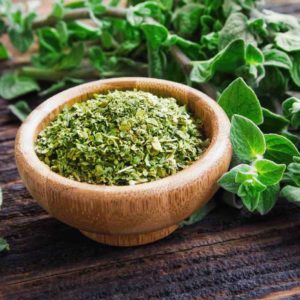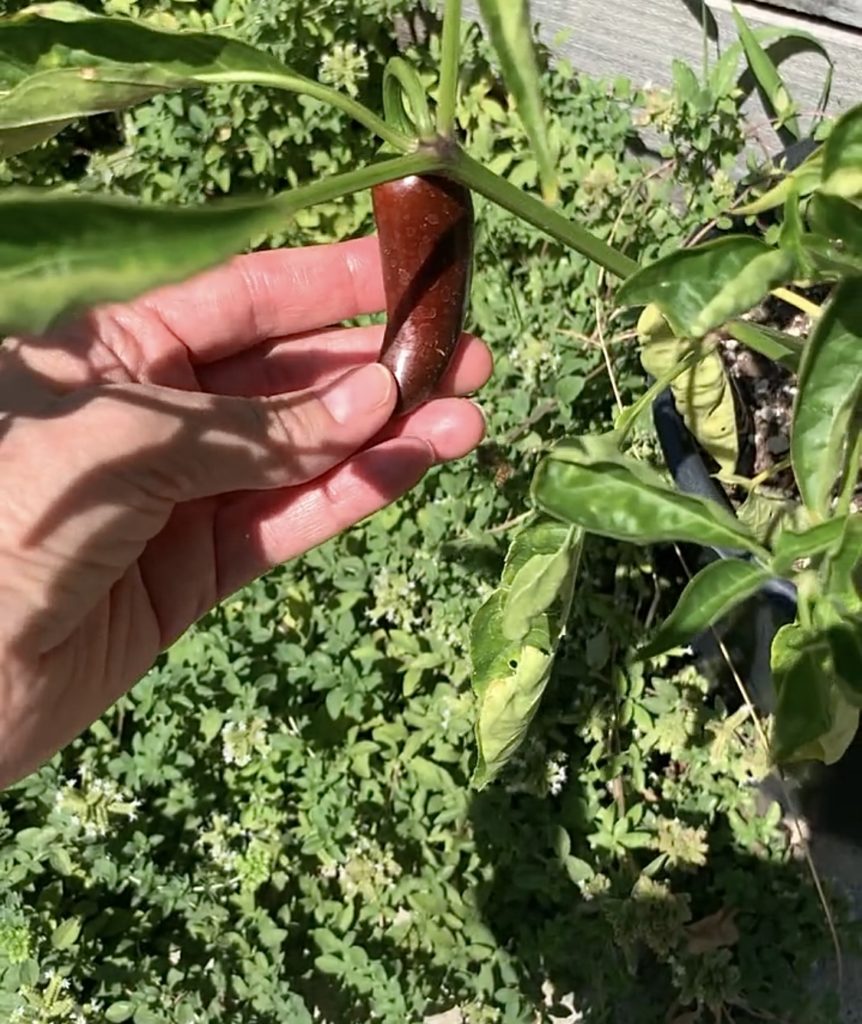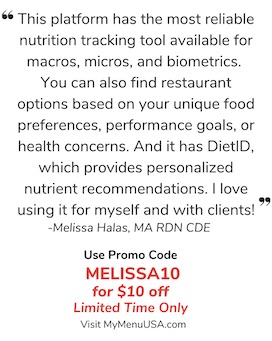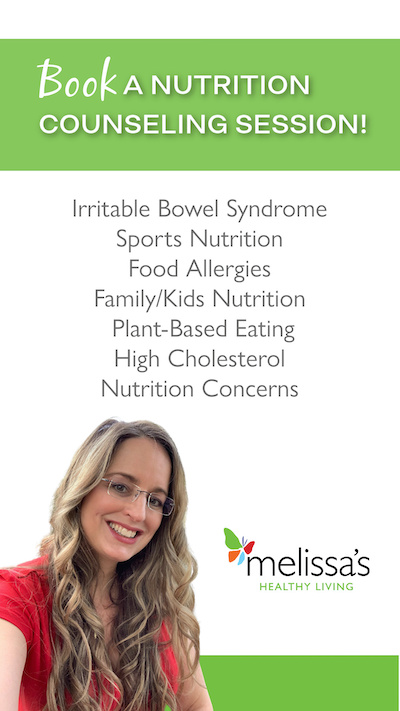
The health benefits of the oregano plant are abundant and come from fresh or dried leaves or the plant’s oil.
Herbs are the ultimate way to elevate and add dimension to any meal. They are the unspoken heroes for wholesome nutrition! Have you ever wondered why your pizza smells so good? That’s the oregano, packed with the aroma from two of its powerful phytonutrients, carvacrol and thymol, which help fight off disease. (1) Along with oregano’s earthy flavor, it also provides fiber, vitamins, and minerals. All it takes is a quick snip with kitchen scissors or a finger pinch to add flavor to your meals with oregano! So, check out why including herba-licious options like oregano can help plant-power your way to better health.
Health Benefits of Oregano
Fresh or dried oregano is packed with antioxidants. (2) This small but mighty herb is considered a functional food due to its abundance of phytonutrients. Phytonutrients are plant-based compounds that serve as antioxidants to help combat inflammation while neutralizing free radicals associated with disease. (3) Interestingly, herbs can have more antioxidant power than berries, fruits, and vegetables. For example, just two teaspoons of dried oregano leaves have antioxidants twice as high as a medium size Fuji apple. (2)
But oregano is not just any herb! Research shows that Mexican, Italian and Greek mountain oregano has the greatest antioxidant activity compared to other culinary or medical herbs. (4) Diets high in antioxidants may decrease oxidative stress, lower the risks of certain types of cancer, and promote heart health. (5) In other words, oregano is a lean, green, health-promoting machine!
Pro Tip: Date your dried herbs when opening. After six months, they lose antioxidant power, although they’re still safe to cook with and will add flavor.
Evolving Evidence of Oregano in Disease Prevention
Oregano may have additional disease benefits beyond heart disease.
- Evidence may support the antidiabetic role of oregano, particularly the role of its phytonutrients carvacrol which can help lower blood glucose levels. (6)
- Carvacrol may also be helpful in treating symptoms related to Parkinson’s disease. (6)
- Also, in one mouse study, thymoquinone (to which carvacrol and thymol are precursors) was associated with improved erectile functions. (6)
- Also, oregano is associated with providing relief from asthma, coughs, and other respiratory ailments. (6,7)
Heart Benefits of Fresh and Dried Oregano
Reap the medicinal benefits of oregano to lend your heart a helping hand! Incorporating herbs at mealtime helps put the saltshaker to rest while giving food extra flavor. Reducing daily sodium intake can help lower the risk of high blood pressure, stroke, cardiovascular disease, and more. Plus, one teaspoon of dried oregano leaves provides approximately 7% of one’s daily recommended intake of vitamin K. This heart-healthy nutrient is found in diets associated with reducing the risk of cardiovascular disease, strokes, and cancer, including atherosclerosis—the stiffening of arteries. (9) It’s no wonder oregano is a staple ingredient in the Mediterranean diet.
Types of Oregano Oil
There are three types of oregano oil:
- essential oil, which is the most concentrated form, is used in aroma therapy or combined with other ingredients in treatments used externally, like skin care (not for oral consumption)
- oil of oregano (used orally), read supplements directions as it may suggest diluting further depending on how you’re using it.
- extracts of oil, often combined with glycerol or alcohol (used in food, teas, or as a preservative).
If you have sensitivity in your digestive tract, like gastric reflux, IBS, or Inflammatory bowel disease, emulsified oregano oil may be better tolerated. In contrast, oregano oil for consumption is diluted.
Pro Tip: Try using oregano tea or leaves mixed with more fragrant and flavorful leaves and a touch of honey to hide the bitter taste for its health benefits.
How to Use Oregano Oil for Oral Health and Immunity
I’ve had clients ask me if there are benefits to using oregano oil under the tongue. Yes, oregano gets straight to work the moment it enters your mouth. Essential oils are used for aroma therapy and combined with other ingredients in treatments used externally. In contrast, oregano oil for consumption is diluted. Like any new food you consume, try a small amount to rule out an allergy.
Previous research shows that oil-pulling—a traditional Ayurvedic remedy that involves swishing oil that’s high in antioxidants (like sesame oil or olive oil) for a few minutes may improve oral health. (10) By adding a few drops of oregano oil into the carrier oil, you can create an antibacterial, antiviral, and antifungal effect. Using oregano oil without a carrier oil, like sesame oil, will cause burning and irritation. Read any instructions on the oil you’ve purchased. Oil pulling with oregano may help with bad breath. After you swish, spit it out, and rinse the sink with water so that bacteria doesn’t collect.
Specifically, multiple randomized control studies showed that oil pulling might lower infection-causing salivary bacteria such as Streptococcus mutans and Candida albicans. (10) Oregano’s antimicrobial effects are primarily due to its carvacrol and thymol content. These two compounds may also help inhibit the growth of resistant microorganisms such as MRSA, E. coli, and more. (10,11)
Fun fact: Thymol gets incorporated into some common brand mouthwashes. Talk about nature’s remedy! To give it a try, add a few drops of oregano oil to your chosen oil and swish away if you feel a bit run down or you’re fighting something off!
Because of oregano oil’s antibacterial properties, there could be some benefit to adding it to cooking oil if you’re at higher risk for H Pylori or have tested positive. (12)
How to Use Oregano as an Essential Oil
To differentiate, essential oils are not for human consumption and are more potent than extracts or oil of the herb (for example, oil of oregano). In fact, essential oils of herbs and spices taken orally can be fatal. (13) So look for liquid or gel cap herbal supplement extracts when consuming or rinsing orally. If you have a sensitivity to alcohol, look for alcohol-free extracts.
Studies show that oregano, as an essential oil used topically, may help treat acne, burns, wounds, and infections due to its potent antibacterial properties. (3,14) It may also provide anti-aging benefits, outperforming ascorbic acid—also known as vitamin C. (3) So, say goodbye to fancy-schmancy face creams and hello to Mother Nature’s remedy for younger-looking skin. But the benefits don’t stop there! Research shows that oregano as an essential oil may provide antifungal, antiparasitic, anticancer, and antidiabetic activities! (3,6) It’s a one-stop shop for better health from head to toe.
Oregano Extract as a Natural Preservative
That’s right; oregano extract may be a viable alternative to synthetic food preservatives due to its antioxidant and antimicrobial properties. (9) Specifically, it may prevent fats and oils from going rancid since it may reduce the colonies of Staphylococcus aureus isolated from food. In one study, frozen lamb burgers presented better oxidative stability when exposed to oregano extract than a synthetic preservative. (15) Combining oregano with other herbs and spices may further enhance food protection. But more research is needed!
Include Oregano in Meals for its Health Benefits
Add dried or freshly minced oregano leaves to:
- turkey, chicken, or black bean burgers.
- bean stew or chili
- zucchini or pasta noodles
- other spices like cayenne pepper, cumin, or dill weed in fish tacos
- polenta, homemade bread, or pizza dough
- savory Greek Yogurt dip
- homemade pizza dough
- in tofu or meat marinades that include garlic, basil, onion, and thyme
Try Oregano Herb Blend Combinations
For a tasty Mexican seasoning blend with oregano, try this combination:
- 1 tablespoon chili powder
- 1/4 teaspoon dried oregano
- 1/4 teaspoon garlic powder
- 1/4 teaspoon onion powder
- 1/4 teaspoon crushed red pepper flakes
- 1/2 teaspoon paprika
- 1 1/2 teaspoons ground cumin
- 1 teaspoon sea salt
- 1 teaspoon black pepper
Try oregano in a dipping sauce for bread:
- Mix finely chopped parsley, garlic, and oregano in a mixture of red wine or balsamic vinegar, olive oil, and red pepper flakes.

How to Grow Oregano
Oregano is one of the easiest herbs to grow! In my own garden, I’ve used it as a landscape cover around my planters, as it provides a beautiful pop of green that’s low maintenance. It likes well-drained soil and does well in either partial or full sun. It’s pretty hardy and can tolerate light watering. Reap the taste and health benefits of having a fresh herb garden. If you live in a colder climate, consider buying a kitchen counter herb garden kit. This makes a fun holiday present!

Enjoying my garden!
Here are More Insights into Herbs and Spices
If you found this article helpful, check out the content below:
- How to Minimize Aging and Boost Brain Health – discusses the benefits of basil.
- Top 10 Ways to Have a Taste Party with Herbs and Spices – easy ways to incorporate herbs and spices.
- 20 Top Healthy Sandwich Spreads – includes spreads packed with dried or fresh herbs.
References:
- Krause ST, Liao P, Crocoll C, Boachon B, Forster C, Leidecker F, et al. The biosynthesis of thymol, carvacrol, and thymohydroquinone in Lamiaceae proceeds via cytochrome P450s and a short-chain dehydrogenase. Proc Natl Acad Sci U S A. 2021;118(52):e2110092118. doi:10.1073/pnas.2110092118
- Halvorsen B.L., Carlsen M.H. and Phillips. K.M. et al. Content of redox-active compounds (ie, antioxidants) in foods consumed in the United States. American Journal of Clinical Nutrition. 2006; 84:95-135
- Lombrea A, Antal D, Ardelean F, Avram S, Pavel IZ, Vlaia L , et al. A Recent Insight Regarding the Phytochemistry and Bioactivity of Origanum vulgare L. Essential Oil. Int J of Molecular Sciences. 2020; 21:1. https://www.mdpi.com/1422-0067/21/24/9653
- Bliss RM. Herbs Can Spice UP Your Antioxidant Protection. Agricultural Research Service, United States Department of Agriculture. Updated Feb. 12, 2022. Retrieved Nov. 22, 2022. https://www.ars.usda.gov/news-events/news/research-news/2002/herbs-can-spice-up-your-antioxidant-protection/
- Khorsand GJ, Morshedloo MR, Mumivand H, Bistgani ZE, Maggi F, Khademi A. Natural diversity in phenolic components and antioxidant properties of oregano (Origanum vulgare L.) accessions, grown under the same conditions. Scientific Reports. 2022;12:5813. doi: 101.1038/s441598-022-09742-4
- Imram M, Aslam M, Alsagaby SA, Saeed F, Ahmad I, Afzaal M, et al. Therapeutic application of carvacrol: A comprehensive review. Food Sci Nut. 2022;10:3544-3561. doi:10.1002/fsn3.2994
- Bahmani J, Khaksarian M, Rafieian-Kopaei M, Abbasi N. Overview of the Therapeutic Effects of Origanum vulgare and Hypericum perforatum Based on Iran’s Ethnopharmacological Documents. J Clin Diagn Res. 2018;12(7). doi: 10.7860/JCDR/2018/34177.11728
- Cronometer [(accessed on 20 December 2022)]; Available online https://cronometer.com/.
- Veenstra JP, Johnson JJ. Oregano (Origanum vulgare) extract for food preservation and improvement in gastrointestinal health. In J Nutr. 2019;3(3): 43-52. doi:10.14302/issn.2379-7835.ijn-19-2703
- Peng TR, Cheng HY, Wu TW, Ng BK. Effectiveness of Oil Pulling for Improving Oral Health: A Meta-Analysis. Healthcare (Basel). 2022;10(10):1991. Published 2022 Oct 11. doi:10.3390/healthcare10101991
- Soltani S, Shakeri A, Iranshahi M, Boozari M. A Review of the Phytochemistry and Antimicrobial Properties of Origanum vulgare L. and Subspecies. Iran J Pharm Res. 2021;20(2):268-285. doi:10.22037/ijpr.2020.113874.14539
- Korona-Glowniak I, Glowniak-Lipa A, Ludwiczuk A, Baj T, Malm A. The In Vitro Activity of Essential Oils against Helicobacter Pylori Growth and Urease Activity. Molecules. 2020;25(3):586. doi:10.3390/molecules25030586
- Martins N, Barros L, Santos-Buelga C, Henriques M, Silva S, Ferreira I CFR. Decoction, infusion and hydroalcoholic extract of Origanum vulgare L.: Different performances regarding bioactivity and phenolic compounds. Food Chemistry. 2014;158(73-80). doi: 10.1016/j.foodchem.2014.02.099
- Licina BZ, Stefanovic OD, Vasic SM, Radojevic ID, Dekic MS, Comic Lr. Biological activities of the extracts from wild growing Origanum vulgare L. Food Control. 2013; (33): 498-504. doi: 10.1016/j.foodcont.2013.03.020
- Fernandes RPP, Trindade MA, Tonin FG, Pugine SMP, Lima CG, Lorenzo JM, Et al. Evaluation of oxidative stability of lamb burger with Origanum vulgare extract. Food Chemistry. 2017;233:101-9. doi: 10.1016/j.foodchem.2017.04.100



